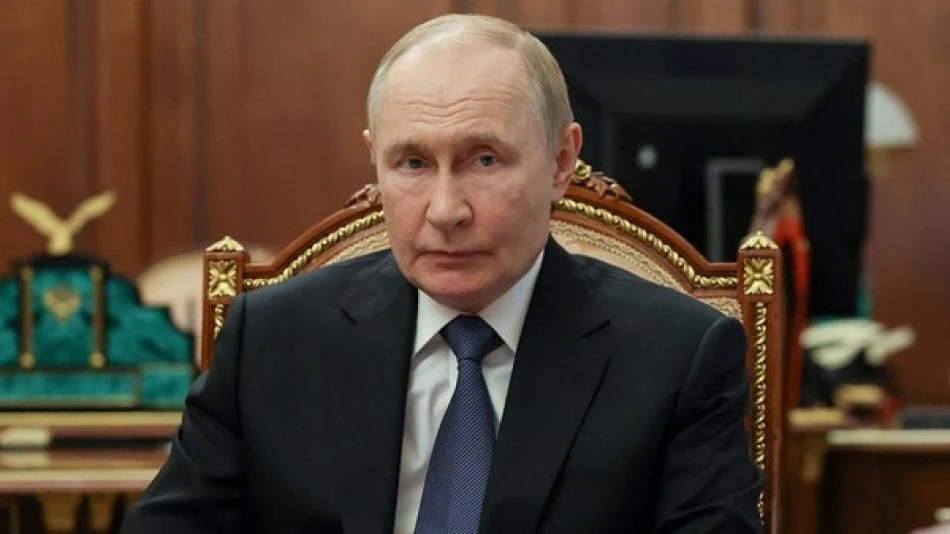
Putin Praises Booming Economic Ties Between Russia and China
Putin Doubles Down on China Partnership as Russia Seeks Economic Lifeline
Russian President Vladimir Putin declared that Russian and Chinese economies are "complementary" during an economic forum in Vladivostok, signaling Moscow's deepening pivot toward Beijing as Western sanctions continue to reshape global trade dynamics. The statement comes fresh off Putin's China visit, where both nations signed a memorandum for a major new gas pipeline project that could further cement their strategic alliance.
Strategic Partnership Beyond Rhetoric
Putin's comments at the Far Eastern Economic Forum weren't merely diplomatic pleasantries. They reflect Russia's calculated strategy to counterbalance Western economic isolation through deeper integration with China's massive economy. The timing is significant—Vladivostok, located near both Chinese and North Korean borders, serves as a symbolic venue for Russia's "pivot to Asia" strategy that has accelerated since 2022.
The newly signed gas pipeline memorandum represents more than just an energy deal. It's infrastructure diplomacy at scale, potentially creating irreversible economic interdependence between the world's largest country by landmass and its most populous nation.
Energy Infrastructure as Geopolitical Weapon
Pipeline Politics Reshape Global Energy
The proposed gas pipeline follows the playbook Russia has used successfully in Europe for decades—until those relationships soured dramatically. Unlike the Nord Stream projects that made Germany dependent on Russian energy, this eastward pipeline positions China as the primary beneficiary of Russia's vast natural gas reserves.
For Beijing, the deal offers energy security and potentially favorable pricing as Russia seeks reliable customers outside traditional European markets. China's energy imports have grown consistently, making it an ideal long-term partner for Russia's energy export ambitions.
Market Implications and Investor Outlook
Energy markets are already pricing in this shift. Russian gas exports to Asia have increased substantially, while European nations scramble for alternative suppliers. The pipeline project signals a permanent realignment rather than a temporary adjustment to current geopolitical tensions.
For investors, this partnership creates both opportunities and risks. Chinese energy companies gain access to stable supply chains, while Russian energy firms secure long-term revenue streams. However, the concentration of trade between two major economies also creates systemic risks if diplomatic relations shift.
Comparing Global Economic Alliances
This Russia-China economic integration mirrors other strategic partnerships but with crucial differences. The US-Canada energy relationship developed through market forces and geographic proximity. The EU's energy interdependence grew from post-war reconciliation and shared institutions.
The Russia-China partnership, however, stems from mutual necessity rather than natural market evolution. Russia needs alternative markets; China needs reliable energy supplies. This pragmatic foundation could prove either more durable—because it serves clear national interests—or more fragile if those interests diverge.
Long-term Consequences for Global Trade
Putin's emphasis on "shared values and approaches" suggests this partnership extends beyond transactional energy deals toward broader economic coordination. This could accelerate the formation of alternative trade blocs that operate outside Western-dominated financial systems.
The implications reach far beyond bilateral trade. As Russia and China deepen economic ties, other nations may face pressure to choose sides in an increasingly multipolar world economy. The pipeline project becomes a physical manifestation of this economic realignment—difficult to reverse and designed to last decades.
For global markets, this partnership represents a fundamental shift toward regionalized trade relationships, potentially reducing the efficiency gains from globalized supply chains while increasing the importance of geopolitical considerations in business planning.
Most Viewed News

 Layla Al Mansoori
Layla Al Mansoori






